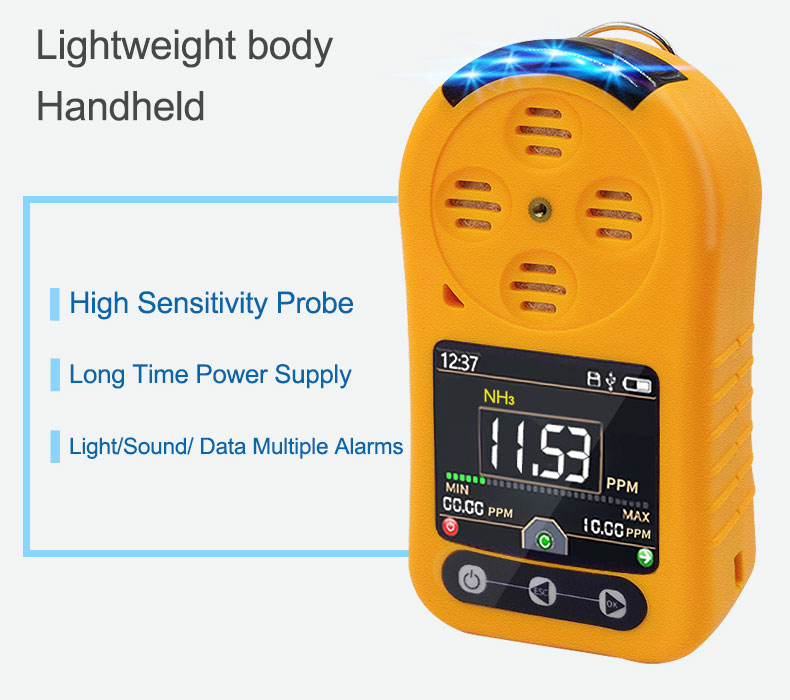Understand of the H2S Detector
The H2S detector is an important safety device that detects the presence of hydrogen sulfide (H2S) gas in the air. H2S is a highly toxic and flammable gas commonly found in industries such as oil and gas production, wastewater treatment plants, and chemical manufacturing. This article will explore the significance of H2S detectors in safeguarding lives in hazardous environments.
The primary function of an H2S detector

The primary function of an H2S detector is to monitor the air for the presence of H2S gas. When the gas concentration exceeds a safe level, the detector activates an alarm system to alert workers and prompt them to take immediate action. Early detection of H2S gas is crucial, as exposure to even small amounts can have severe health effects. H2S is known for its rotten egg odor, but at high concentrations, it can quickly overwhelm the sense of smell, making it imperceptible without a reliable detector.
The use of H2S detectors is essential for protecting workers from the harmful effects of H2S gas exposure. Inhalation of H2S gas can cause various health issues, from mild symptoms like headaches, dizziness, and eye irritation to more severe consequences, including respiratory problems, loss of consciousness, and even death. By promptly detecting the presence of H2S gas, these detectors provide workers with valuable time to evacuate the area and seek medical attention, preventing potentially fatal outcomes.
H2S detector are not only critical for personal safety but also for maintaining process safety in industrial environments. H2S gas is highly flammable and can be explosive when mixed with air within certain concentration ranges. In facilities where H2S is produced or handled, the risk of gas leaks and subsequent explosions is ever-present. By continuously monitoring the levels of H2S gas, detectors can trigger alarms, allowing workers to implement emergency response procedures and prevent catastrophic incidents.
Moreover, H2S detector play a vital role in regulatory compliance. Many countries and industries have specific regulations and standards in place to limit occupational exposure to H2S gas. By utilizing H2S detectors, businesses can ensure they are meeting these requirements, promoting a safe working environment, and avoiding penalties or legal repercussions.
Advancements in technology have led to the development of portable and wearable H2S detectors, making them even more accessible and effective. Workers can carry these lightweight devices with them at all times, minimizing the risk of exposure to H2S gas in dynamic work environments. Additionally, some detectors offer features such as real-time data logging and wireless connectivity, allowing for remote monitoring and centralized data management.
In conclusion, H2S detectors provide a crucial line of defense against the hazards of hydrogen sulfide gas in hazardous environments. They play a vital role in protecting workers’ health and safety, preventing explosive situations, and ensuring regulatory compliance. As technology continues to advance, H2S detectors will become even more sophisticated and integrated into comprehensive safety systems, further enhancing the protection of lives in high-risk industries. Regular maintenance, calibration, and training on the correct use of H2S detectors are essential to ensure their reliability and effectiveness in saving lives.
